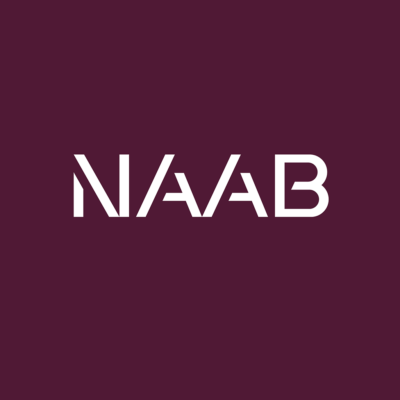
Courses in our BArch and MArch programs can help meet EESA-NCARB Education Evaluation requirements. NAAB frequently refers our NAAB-accredited programs to candidates seeking US licensure. Candidates must receive pre-approval from NAAB for any proposed courses to ensure compliance with the most up-to-date requirements.
Our NAAB accredited programs are reviewed on an 8-year cycle. BArch accreditation was renewed in 2018 and MArch in 2022. In between reviews, we are responsible for compliance with the NAAB criteria that was in effect at the time of the review. As a result, BArch was under the 2014 NAAB criteria through Spring of 2025. Energy modeling (Building Performance) is one recent change in NAAB criteria. In preparation for the next review in 2027, we have updated our curriculum to meet the new criteria.
From NAAB https://www.naab.org/education-evaluation-services/introduction-to-eesa
Evaluation services performed by Education Evaluation Services for Architects (EESA), a partnership program between the National Architectural Accrediting Board (NAAB) and the National Council of Architectural Registration Boards (NCARB), are provided for individuals seeking an NCARB certification or registration in a U.S. jurisdiction who do not have a professional degree in architecture from a program accredited by the NAAB- or Canadian Architectural Certification Board- Conseil Canadien de Certification en Architecture (CACB/CCCA).
The NCARB Education Standard is an approximation of the requirements of a professional degree from a program accredited by the National Architectural Accrediting Board (NAAB). It includes liberal arts, professional studies, and electives, which together comprise a professional education in architecture.
We receive the most number of inquiries about Building Technology and Professional Practice. Suggested course list below is based on NCARB Education Guidelines. Please submit a course syllabus to NAAB for pre-approval. For course descriptions and course learning outcomes, please click on the course title links below. For a full course syllabi, please contact our Admissions team at 1-800-544-2787 or admissions@academyart.edu
Note: Unless NAAB specifically requires studio courses, we recommend opting for non-studio courses. Studio courses are 6 credits and require a time commitment of 20 hours each week minimum (most weeks require more time). Design studio courses involve physical model making for which you will need model making tools and supplies. Please be sure to connect with our Admissions team to determine the best course to submit to NAAB for pre-approval.
We recommend submitting the following courses to NAAB for pre-approval.
A. Structural Systems
- ARH 320 Structures: Wood and Steel (pre-requisite: Physics)
- ARH 330 Structures: Concrete, Masonry, and Tensile Systems (pre-requisite: Physics)
- ARH 602 Structures (graduate course)
B. Environmental Control Systems
- ARH 430 Sustainable Design (passive systems)
- ARH 440 Design Technology: Environmental Controls
C. Construction Materials and Assemblies
- ARH 239 Materials and Methods
- ARH 604 Materials and Methods of Construction: Building Detailing (graduate course)
D. Building Service and Enclosure Systems
- ARH 440 Design Technology: Environmental Controls
- ARH 441 Tectonics: Code Analysis and Building Envelope Documentation (includes enclosure systems)
- ARH 604 Materials and Methods of Construction: Building Detailing (graduate course)
E. Technical Documentation
- ARH 441 Tectonics: Code Analysis and Building Envelope Documentation
- ARH 606 Construction Documents and Building Codes (graduate course)
F. Project Cost Analysis
- ARH 441 Tectonics: Code Analysis and Building Envelope Documentation (cost estimate of envelope system)
G. Building Performance
- ARH 430 Sustainable Design (includes energy modeling)
- ARH 440 Design Technology: Environmental Controls (includes energy modeling starting in Fall 2025)
We recommend submitting the following courses to NAAB for pre-approval.
A. Project Management
- ARH 475 Professional Practices for Architects
- ARH 614 Architectural Professional Practices (graduate course)
B. Business Management
- ARH 475 Professional Practices for Architects
- ARH 614 Architectural Professional Practices (graduate course)
C. Laws and Regulations
- ARH 475 Professional Practices for Architects
- ARH 614 Architectural Professional Practices (graduate course)
- ARH 441 Tectonics: Code Analysis and Building Envelope Documentation
D. Ethics and Professional Conduct
We recommend submitting the following courses to NAAB for pre-approval.
A. Fundamental Design
- ARH 150 Studio 2: Spatial Ordering and Form (6 credits, requires 20 hours per week)
B. Investigative Design
- ARH 255 Studio 4: Assembly Building and Context (6 credits, requires 20 hours per week)
C. Design and Building Integration
- ARH 350 Studio 6: Site Conditions and Building Performance (6 credits, requires 20 hours per week)
- ARH 410 Studio 7: Tectonics and Structure (co-requisite ARH 420 Structures: Systems Investigation for a total of 9 credits, requires 30 hours per week)
- ARH 450 Studio 8: Housing and Integrated Design (co-requisite ARH 440 Design Technology: Environmental Controls for a total of 9 credits, requires 30 hours per week)
EESA may accept continuing education courses for some of the education categories. Please check with NAAB.
- NCARB https://ce.ncarb.org
- AIA https://aiau.aia.org
- AIA California https://www.aecknowledge.com/courses
